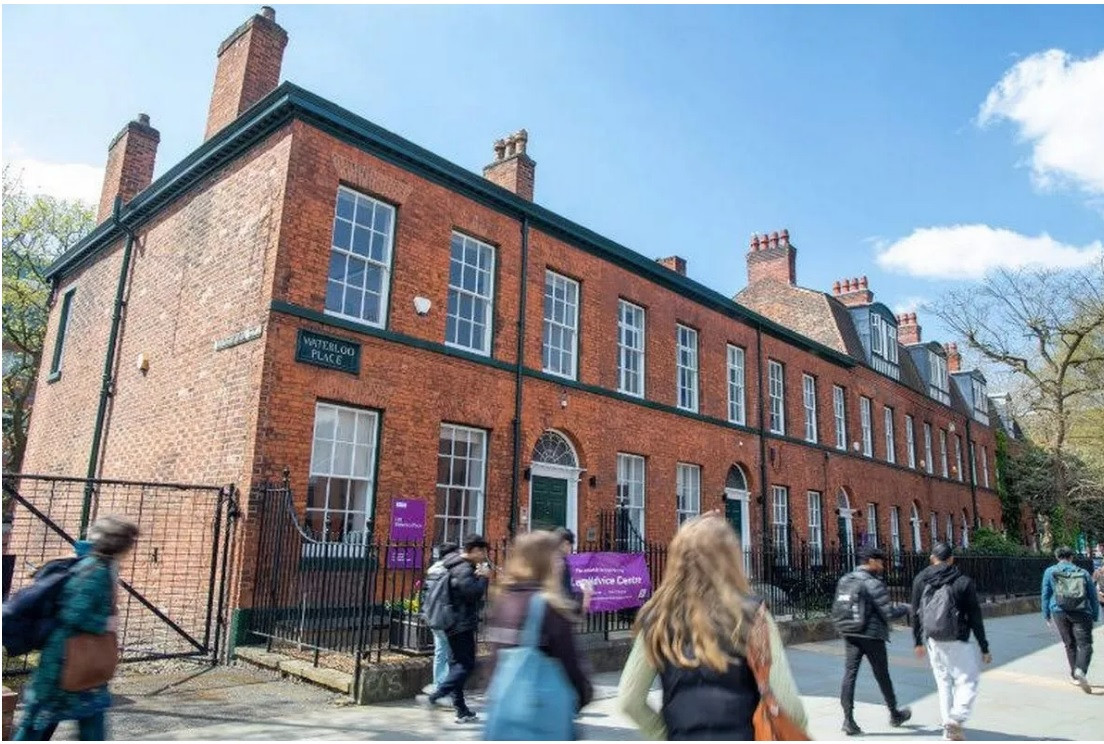Students address local social inequalities

Social responsibility is a core priority for The University of Manchester, which also encourages its students to take their learning outside lecture halls and into the community, helping them fully grasp and address real-world issues through a concept known as ‘service learning’.
By collaborating with community groups, organisations, and schools to expand their expertise and experience, service learning allows students to deliver essential and relevant services to local residents, benefiting both the community and the students themselves.
At times, obtaining legal advice becomes essential. Yet, finding affordable and reliable legal guidance can be a significant challenge for some individuals.
Believing that legal advice should be universally accessible, The University established the Justice Hub in a prominent location on Manchester’s Oxford Road. This initiative enables students from the School of Social Sciences to join forces with a shared aim of serving the community. The Hub provides free legal advice and guidance on a wide range of issues.
Law lecturer and Justice Hub lead, Philip Drake, described its role: “The Justice Hub is a collective term for various free legal advice projects managed together. Our flagship initiative is the Legal Advice Centre, which is fully integrated into our curriculum.
“This year, 328 students are already signed up, reflecting the high demand from both students and the local community. Last year, we handled close to 1,500 enquiries seeking legal assistance.”
Supported by University staff and professional lawyers who volunteer their expertise, the Justice Hub is primarily student-driven, offering future solicitors and legal advisors hands-on experience with the inequalities in the legal system while encouraging them to make a positive impact.
Phil said: “We incorporate reflective practice into the work. It’s about more than developing legal skills; it involves thinking critically about the fairness of the law, its negative impact on the most disadvantaged and often marginalised, and understanding the reasons behind it. Experiencing a client breaking down in tears during a meeting is something that cannot be taught in a traditional classroom setting.
“It’s inspiring to witness students’ growth from where they begin to their achievements at the end. Whatever their future paths, we want them to carry a sense of social responsibility with them.”
One of the Justice Hub’s initiatives, the Manchester Innocence Project, focuses on assisting the wrongfully convicted and fostering reforms in the justice system.
Recently, the Project received the Greater Manchester Pro Bono Award for ‘Best Group of Students’, while the University was also a finalist for ‘Best Educational Institution’.
Undergraduate social anthropology student, Honey Fisher, who works within the Justice Hub, commented: “Being a Justice Hub intern has been an amazing chance to gain practical experience and develop essential skills for a career in law.
“By attending client interviews, we saw how members of the local community face a broad range of legal challenges and recognised how crucial services like those provided by the Justice Hub are in bridging the legal aid gap.”
Many people take access to quality dental care and trustworthy health information for granted. However, for some, these basic services remain out of reach.
University of Manchester dental students offer free treatments at the University’s Emergency Dental Clinic, serving around 2,000 patients annually. This allows the students to refine their skills while addressing local communities’ needs and tackling significant dental health disparities, a known issue in the north-west.
Striving to narrow dental inequalities, students also provide care to refugees and other minority groups. Recognising the impact of dental health inequalities on children, the University’s dental students participate in a charity-led initiative, visiting schools to educate children on oral hygiene’s importance.
Increasingly, University of Manchester students engage directly with industries for mutual benefit. For example, the University’s Fashion, Business and Technology School has partnered with leading fashion industry companies.
In ‘industry-live projects’, students act as consultants, addressing real-world briefs that align with the industry’s strategic goals. Over 200 students collaborate with these partners during key points of the semester.
Dr Julian Skyrme, executive director of social responsibility and civic engagement at The University of Manchester, highlighted: “The efforts of our law students are just one example of the service learning we have implemented at the University.
“Our dental students provide oral health checks for homeless individuals, drama students collaborate with offenders in the criminal justice system, and management students offer consultancy to non-profit organisations.
“As we consider the University’s direction for the next decade, we envision every student contributing positively to society as part of their education.”
Learn more about The University of Manchester’s commitment to social responsibility at www.socialresponsibility.manchester.ac.uk.
Discover more about the Justice Hub.
Explore service learning within the University’s Faculty of Biology, Medicine, and Health.




